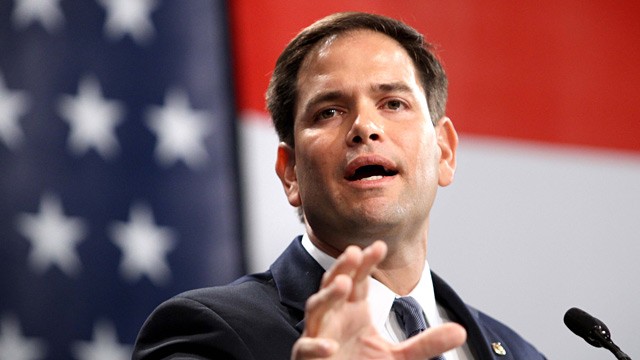Lower individual and corporate tax rates. Eliminate the AMT. Simplify the tax code. The tax messages being trumpeted by most of the presidential candidates sound similar and ring pretty hollow, to tell the truth, for the most. But at least one GOP contender, Senator Marco Rubio (Rep.-FL), is singing a different tune.
According to a recent article in the Wall Street Journal (“GOP Candidate Marco Rubio’s Tax Plan Has One Big Catch,” Article requires WSJ registration), Rubio’s proposed tax plan includes a dramatic change in the way capital gains are treated. With this little-noticed proposal, holders of capital assets – including securities, real estate and small business interests – would calculate their potential gains on a specified “booking date. ” When the asset is sold, the taxpayer would owe tax based on that amount – no more or no less. Any appreciation after the booking date would be tax-free.
In effect, this provision eliminates capital gains for investors, or at least that’s how Rubio‘s camp is characterizing the change.
Currently, capital gains are determined by the difference between the price on the date of the sale and the taxpayer’s adjusted basis (often the initial purchase price). Net long-term capital gains benefit from preferential tax rates of 20 percent, 15 percent and even 0 percent. Some upper-income investors must also pay 3.8 percent surtax on a calculation involving net investment income (NII).
Under the proposal, the highest tax rate for the one-time gain would remain at 20 percent (absent the 3.8 percent surtax on NII), although the threshold for reaching this top rung hasn’t been specified. It has been estimated by the Rubio campaign that the one-time tax could generate $500 billion over the first decade.
A single booking date for capital gains is not without precedent. Canada used such a valuation date in 1971 when it began taxing capital gains.
The Wall Street Journal notes that the proposal could present logistical challenges in valuations of assets such as family-owned farms and closely-held businesses. In addition, appraisals may be required for assets like artwork. What’s more, it’s been argued that the revenue resulting from a single tax on capital gains would obscure the actual results of this sweeping change. With future gains completely sheltered from capital gains tax, it’s not clear what the ultimate tax impact will be.
On the other hand, Rubio’s supporters maintain that the repeal of capital gain taxes will spur investment growth and raise wages and income for all taxpayers. They say the one-time tax hit would provide a “fair transition” to life without any capital gains tax.
Among the other issues raised by Rubio’s proposal is how the law would treat assets that decline in value after the booking date. Also, it isn’t clear how sales of business assets would be coordinated with the corporate tax rate. And detractors point out the need for valuations will only increase the pressure on an IRS already overburdened and operating with reduced resources due to budget cuts.
The other tent poles in the tax plan proposed by Rubio are on more solid ground. As opposed to a consumption tax favored by some GOP rivals, he would keep the basic tax system in place. The Florida senator has proposed cutting the top tax rate for individuals from 39.6 percent to 35 percent, while virtually everyone else is targeting a top rate below 30 percent. He has also advocated a child tax credit of $2,500 per child (it’s currently only $1,000) that would be refundable against payroll taxes.
Thus far, we haven’t seen any strong reaction to this tax plan from Rubio’s challengers or the other side of the aisle. But we will likely hear it played out during the course of the campaign.
Thanks for reading CPA Practice Advisor!
Subscribe Already registered? Log In
Need more information? Read the FAQs
Tags: IRS, Tax Planning, Taxes




